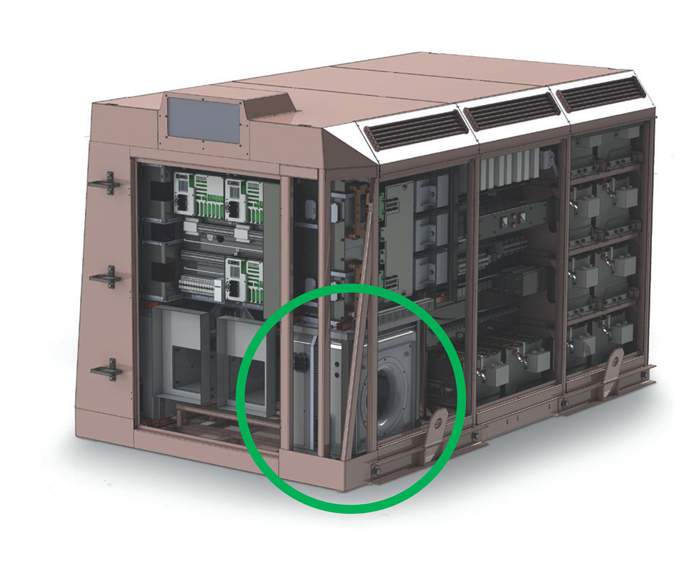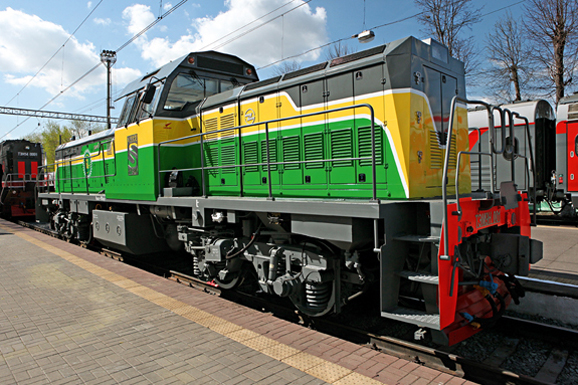Modernisation of rail travel is right at the top of the Russian government’s list of priorities: By 2030 a national campaign is aiming to make the railways safer, more reliable and more ecological in keeping with international standards. This will require a new approach on the part of Russian manufacturers who so far have always stuck to conventional designs: Namely diesel and electric engines. But both of these have certain disadvantages: Electric trains hardly produce any CO2 emissions but the infrastructure costs are high on account of the overhead wires for example.
Widespread electrification is therefore not a feasible option at the moment in a country the size of Russia. The use of diesel engines is attractive from a financial point of view but there are lots of ecological drawbacks to consider. To make the most of both technologies whilst minimising the negative aspects, a Russian locomotive manufacturer had the idea of simply combining the two systems in one engine.
The best of both worlds

An EC centrifugal fan (bottom centre) in the electronic module for the electric drive system ensures heat dissipation
To be able to switch between drive systems as required in the course of a journey, the hybrid locomotive is designed for both electrical and diesel operation. The engine is therefore provided with an electronic module which, by way of a frequency converter, makes it possible for the drive units at the train wheels to make use of the electricity from the power line. Even at sub-zero temperatures, a considerable amount of heat is constantly generated in the module and has to be dissipated as quickly as possible. This was a real challenge for the development engineers, as the electronics have to be housed in a confined space and are also subjected to severe vibration and extreme temperature differences in the train – a difficult environment for any piece of equipment.
The locomotive manufacturer approached the Russian branch of ebm-papst in Jekaterinburg with this problem. Thanks to a good working relationship over the previous eight years a solution was quickly found. Working on the basis of an existing GreenTech EC centrifugal fan, the Russians got together with experts from Mulfingen to develop four new fan models capable of ensuring the necessary heat dissipation in the electronic module even under the toughest conditions. The trial run in 2012 satisfied everyone’s expectations. Delivery is timetabled for 2015.

Leave a comment